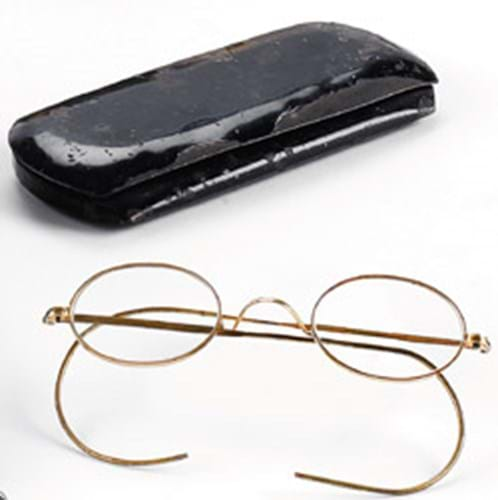
Gandhi's gold rim spectacles, a pair of worn leather sandals, an inexpensive pocket watch and a simple brass bowl and plate sold for $1.8m (£1.4m) at the sale conducted by Antiquorum in New York on March 5.
As reported in the international press, the sale had been sharply criticised in India where the matter had reached prime ministerial level.
Following a courtroom challenge, the legal owner, Los Angeles-based film-maker, peace activist and collector James Otis, had demanded that India raise its spending on the poor from one per cent of its GDP to five per cent and fund a world tour of Gandhi-related items to raise awareness of his belief in non-violent civil disobedience. He then unsuccessfully attempted to halt the sale himself at the eleventh hour.
Gandhi is believed to have given the eyeglasses and their leather case to an army colonel, telling him they were the "eyes" that had given him the vision to free India.
The timepiece, a 1910 Zenith sterling silver pocket watch with an alarm that the ever-punctual Gandhi kept attached to his loin cloth, had been given to his grandniece and assistant, Abha Gandhi, in the 1940s.
The sandals were apparently given to a British military officer who photographed the leader in the Yemen port city of Aden, where Gandhi had stopped en route to England.
They were sold as a single lot with a pre-sale estimate of just $20,000-30,000. The buyer was Vijay Mallya, chairman of United Breweries Group and Kingfisher Airlines, who announced his intention to return the items to the Indian government once all legal issues relating to the sale are resolved.
By Roland Arkell




